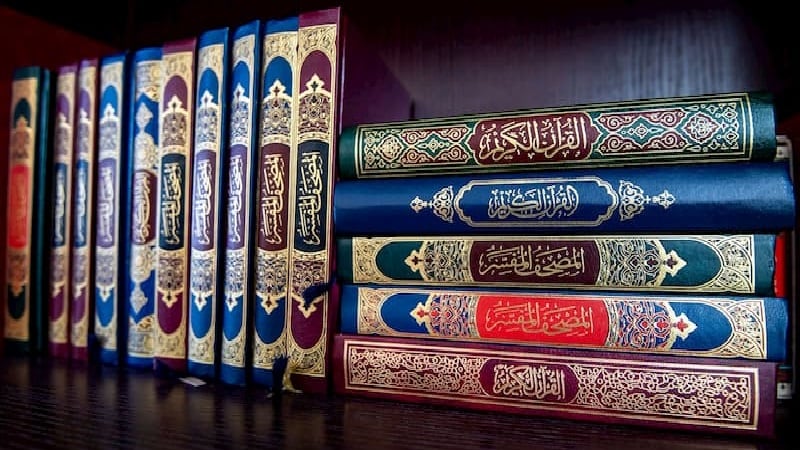A Study Of Fawz Al Kabir
(Exclusive Of Ulama, Alimat & Advanced Students Of Islamic Studies)
About The Course
A unique high-level course designed for ʿulamā and advanced students who wish to learn in-depth studies of Uṣūl al-Tafsīr through the study of classical kutub. The course will cover al-Fawz al-Kabīr fī Uṣūl al-Tafsīr of the great Indian Scholar Shah Waliyyullah Dihlawī (1114/1703, India—1176/1762, India), and Muqaddama fī Uṣūl al-Tafsīr of the great polymath Ibn Taymiyyah (661/1263, in Harran–728/1328, in Damascus)
Course Team

Shaykh Mustaqeem Shah
(Lecturer, Al Balagh Academy, UK)
AT A GLANCE
12 Live Online Sessions
Duration: 4 Months
Sundays, 2PM-3PM BST
Video Recordings Available

Access to Mobile App
Certificate
Live Q & A
Enrol Now
Starts on 24th January 2021
There will be no formal teaching sessions during Ramadan.
Course Fee
Free
(Considering the prevalent situation due to COVID-19, we are providing this Course for free)
Registration Deadline
Course Team

Shaykh Mustaqeem Shah
(Lecturer, Al Balagh Academy, UK)
Main Modules
MODULE
1
Life Of ShāhWaliyullah
Life Of ShāhWaliyullah
MODULE
2
The Five Fundamental Sciences
The Five Fundamental Sciences
MODULE
3
First Science: Polemics
First Science: Polemics
MODULE
4
The Four Sciences
The Four Sciences
MODULE
5
Composition Of The Qurān: Hidden Meanings
Composition Of The Qurān: Hidden Meanings
MODULE
6
Subtleties In The Composition Of The Qurān
Subtleties In The Composition Of The Qurān
MODULE
7
The Methodology Of Tafsir And Differences
The Methodology Of Tafsir And Differences
MODULE
8
The Gharāib And ʿUlūm Al-Wahhāb In The Qurān
The Gharāib And ʿUlūm Al-Wahhāb In The Qurān
Course Overview
Al-Fawz al-KabīrfīUṣūl at-Tafsīr – “The Great Victory, on Qur’ānic Hermeneutics” is a manual of the principles and subtleties of Qur’ānic Tafsīr, originally written in Persian by the author. After a comprehensive survey of the contents of the Qur’an, ShāhWaliyuallāh classifies its themes in five fundamental sciences that the Qur’ān contains:
- The science of judgements (aḥkām),
- Reminding others of the Favours of Allah,
- The Days of Allah and the Life after Death,
- Giving particular attention to the science of polemics.
He reviews the other sciences of tafsīr such as the reasons of revelation (asbāb an-nuzūl), abrogating and abrogated āyāt (an-nāsikhwa’l-mansūkh) after discussing the reality of abrogation (naskh), he corrects the newer scholars’ over-emphasis on the circumstances of revelation and the unusual words and phrases of the Qur’ān (gharā’ib al-Qur’ān). He concludes by detailing the extraordinary and miraculous aspects of the Qurān.
ShāhWaliyyullāh was born on 4th Shawwāl 1114 AH/10th February 1703 CE in northern India. He was descended from ‘Umar ibn al - Khaṭṭāb and was thus Qurayshī. He had a traditional education in all the classical sciences from his father and other scholars in India before journeying to Makkah from where he returned in 1145 AH/1733 CE with excellent knowledge of all the major works of ḥadīth. He dedicated the rest of his life to teaching in Madrasah Raḥīmiyyah and to writing widely on all the known Islamic sciences as well as working tirelessly for the reform of Indian society and renewal of dīn. He died in 1176 AH.
Muqaddama fī Uṣūl al-Tafsīr– An Introduction to the Sciences of Tafsīr is a concise yet comprehensive work on the principles of Tafsīr. The main approach and emphasis of Imam ibn Taymiyyah is the authenticity and reliability of exegesis and the different approaches one must undertake to ensure accuracy in transmitting the meaning of the Qurān. He emphasises the association of the meaning transmitted from the Prophet Muhammad ﷺ to the following generation, especially the companions and their differences as well as the reliable amongst the next generation. He presents many arguments to provide weight to this approach and comments about other tafāsīr and mufassirīnas well as sects such as the Muʿtazali and the Shīʿā. The book concludes with the subject of transmission of the Ahl al-Kitāb and the most reliable mufassirīn amongst the Tabiʿīn.
Taqī ad-Dīn Ahmad ibn Taymiyyah was born in 661 AH/ 1263Harran, Sultanate of Rum and died 728 AH/ 1328 (aged 64–65) in Damascus, Sham. He was a Sunni Muslim theologian, jurisconsult, logician, and reformer member of the Hanbali school of jurisprudence. He was viewed as a minority in his own time, however, in the centuries that followed, Ibn Taymiyyah became one of the most influential medieval writers in contemporary Islam, where his interpretations of the Qur'an and the Sunnah and his rejection of some aspects of classical Islamic tradition has considerable influence. He was a religious scholar and a political activist. He left a considerable body of work, ranging from 350 according to his student, Ibn Qayyim Al-Jawziyya to 500 according to his student al-Dhahabi. His scholarly works are described as immense with a broad scope and its contents "turn the marks of brilliant insights hastily jotted down."


Learning Outcomes
On Completion Of This Course, The Successful Students Will:
- Demonstrate an in-depth understanding of the development of Qur’anic exegesis.
- Gain an in-depth understanding of the Qur’anic hermeneutics through a methodical approach to its exegesis.
- Demonstrate a familiarity with the terminology used in Qur’anic exegesis and gharāib.
- Understand and apply the general principles of Qur’anic exegesis carefully.
- Evaluate interpretations of the Qur’an in text and other literature critically.

Frequently Asked Questions
Are Al Balagh courses recognised or accredited?
Al Balagh courses do not provide an externally accredited or recognised qualification. Our own expert team works at the course content. With over 5000+ learners, we are continuously growing and our vision is to make Al Balagh qualifications renowned worldwide through our expert team, without seeking formal accreditation or recognition from external institutional bodies.
How is this online course structured?
Our online course comprises live interactive online sessions, pre-recorded videos, online course material that include, presentations, reading material & online learning activities. Students may ask questions and get their doubts cleared from their respective lecturers, if any. Our dedicated academic support team will assist you as required.
When will I have access to the online course material?
Upon successful enrollment, you will get access to myAlBalagh (our online learning portal) within 24 hours.
Will I get notification for live sessions?
All students will receive notification for their course live sessions via email and/or course WhatsApp group. You may also check the Course Schedule tab on your dashboard after logging in on our website or Mobile App.
Is it mandatory to attend live sessions?
We always encourage attending live sessions among students, but it is not compulsory for technical course progress of the students.
I missed a live session. Can I get the video recordings?
If you are unable to attend a live session or have missed it, you can view recorded sessions on your course dashboard. You can access all the completed Recordings, PPT and assessments anytime.
Can I download the recordings and watch it offline?
You can download recordings and PPT of the course sessions from the myAlBalagh mobile App for all the enrolled courses.The recordings will be available for students after 48 hours of the live session.
Do I get marks for watching course recordings and presentations?
There are no additional marks for watching the course recordings. Only the module Assessments and the final exam add up to the final score.You can check the individual scores of your Assessments under the Progress tab of myAlBalagh.
I have doubts but I cannot attend the live session. Any other way to ask my questions?
You can discuss your doubts via Course WhatsApp Group dedicated for student discussion or access the Discussion Board on myAlBalagh. It is a platform for you to ask questions, discuss and get your doubts cleared.
When will the final exam be held?
The Final Exam will be held at the end of the course and will be a Graded And Timed Exam.
How do I interact with my classmates?
You can interact with your classmates on our Whatsapp Group exclusive for the course students. Furthermore, you can use the Discussion Board to connect with other course students as well.
How long will I have access to the online course?
You will have access to the online course content for up to 2 years. If you want lifetime access, contact our admin team via Email at [email protected].
I am facing trouble signing into the “myAlBalagh” Online Student portal. What should I do?
In case you find any trouble accessing your account, then please contact us immediately. Our dedicated support team will ensure that your problem gets resolved at the earliest.
How can I apply for the Al Balagh Scholarship?
Al Balagh Academy values seekers of knowledge more than anything. Please visit here to apply for a scholarship. Our team will assess your application and respond in 2-3 working days.
